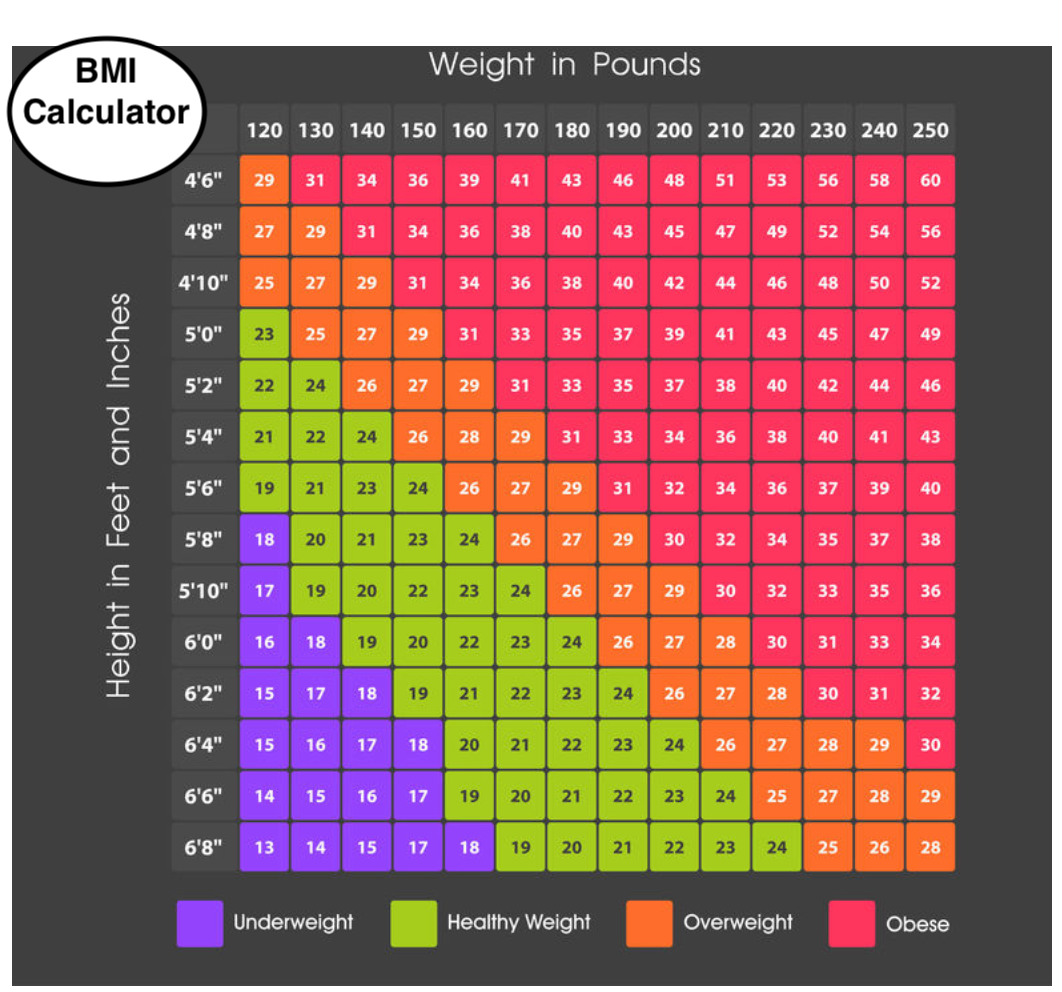BMI Calculator 
The Body Mass Index (BMI) calculator calculates BMI value while taking age into consideration. You enter your weight and height using standard or metric measures.
Some advanced BMI calculators (SBMI) have advanced options as well. You can add your gender and even current diet plans too in order to have specific and most accurate results. It helps in assessing better health risk estimate than the common weight class definitions.
It is important to remember that the values of BMI calculators aren't applicable to people under 18 and pregnant women. Some specific ethnic backgrounds can also play an important role in the calculations.
Is BMI Important?
The body mass index, or BMI, is a calculation used to determine your level of body fat. In some cases, it can help a doctor determine your overall fitness and your risk of developing chronic diseases. Still, BMI is not the only factor your doctor considers, and it isn’t a completely reliable assessment for every body type.
Understanding BMI Results
Generally, if you’re at a healthy weight, your body mass index should fall between 18.5 and 24.9, notes the National Heart, Lung and Blood Institute. If your BMI is below 18.5, you could be underweight. On the other hand, a BMI greater than 25.0 is categorized as overweight, while a score above 30 is considered obese.
Why The Number Is Important
A body mass index in the low range signals that you could be malnourished. Maybe your body isn’t properly absorbing nutrients or maybe you’re just not getting enough calories to support your activity level. Conversely, having a BMI on the higher end alerts your physician that your risks of heart disease, diabetes, and certain cancers are higher than someone with a normal BMI. Your doctor might set you up with a registered dietitian, who can help you get your weight back on track and reduce your risk of developing health problems.
Problems
While BMI is a starting point to evaluate your health, it isn’t flawless. For example, it doesn’t account for gender, and women tend to have more body fat than men. So as a woman, even if your body mass index is in the normal range, you could still have a high percentage of body fat. The calculation also doesn’t account for muscle mass. Muscle weighs more than fat, so if you lift weights and have toned muscles, your BMI could be high even if you’re not overweight. The test also doesn't account for genetic factors, bone density or your activity level, or take into consideration the fact that thinness doesn't necessarily equal healthiness.
Dr. Amen Briefly elaborates regarding obesity...
This is Better Measurements of Health
Given the frequent unreliability of BMI tests, you may want to use other tools to assess your wellness and body fat levels. Important signs of wellness include positive energy levels, normal digestion, eating a variety of nutritious foods each day and not feeling famished or overly "stuffed" throughout the day. Some fitness experts use skin calipers to measure body fat, which can be more accurate than BMI tests. You can also judge weight loss by clothing fit or using a tape measure on occasion to measure your waist circumference.
Dr. Rhonda Patrick: "Why obese people with BMI>28 or above have a much higher level of Double Strands Breaks (DNA Damage) compare to people that are lean with BMI<25 or below?!"
Effortlessly Lose Weight When You Incorporate These Simple Rules,
-
Use Looking vibrant Nutrition To Curve Hunger
-
Lean protein
-
Low in carbs (No sugar)
-
Eat small meal portion
Team-
Looking Vibrant



